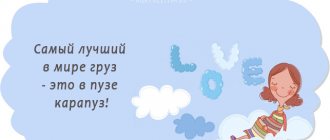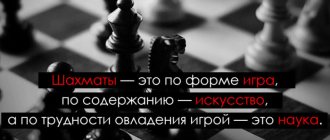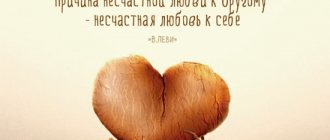Quotes about children with meaning
- If you want your children to do well, then spend twice as much time with them and half as much money. (Abigail Van Buren)
- The greatest and most valuable gifts we can give our children are the roots of responsibility and the wings of independence. (Denis Whately)
- Parents can learn a lot from their children. Like how much patience they have. (Franklin P. Jones)
- Even if children are still very young, they should not be prevented from saying what they think. (Anne Frank)
- Every child needs a world where they can laugh, dance, sing, learn, live in peace and be happy. (Malala Yousafzai) (We recommend reading funny quotes and sayings about children).
- Children will listen to us when they see that we are listening to them. (Jane Nelsen)
- I was in the war, raised twins, but if I had a choice, I would rather go to war. (George Bush)
- If a child cannot learn the way we teach him, perhaps we should teach him the way he learns. (Ignacio Estrada)
- Children are not vindictive. Even if you punish them, they will hug you within a few minutes. (T.D. Jakes)
- I continue to believe that if children are given the necessary tools to succeed, they will succeed beyond their wildest dreams! (David Witter)
- Children with disabilities are stronger than we think. They fight battles that most people will never know about. (Unknown)
- If you want to see your child's creativity, then stop giving him toys for a while. (Norman Douglas) (If your children have graduated from high school, then read the wise quotes and wishes for graduates).
- Children need guidance and empathy much more than instructions. (Anne Sullivan)
- If you want your children to stand on their own two feet, then give them some responsibility. (Abigail Van Buren)
- Children will learn more from what you are, not from what you teach them. (William Burkhardt DuBois)
Extracurricular activity in the Russian language “Winged Expressions”
Extracurricular lesson in the Russian language “Winged Expressions” Objectives:
- introduce children to popular expressions;
- learn to use words from different language styles in your speech;
- point out the limitless possibilities of the great mighty Russian language;
- develop speech, logical thinking, memory, attention, imagination, the ability to use popular expressions in your speech;
- cultivate interest, love for the native language, pride, curiosity, independence.
Event plan:
I. Music is playing. Parents take seats at the blue, red and green tables, resulting in three working groups of meeting participants.
II. The class teacher opens the meeting, names its topic and the reasons for holding such a meeting.
III. Parent groups are invited to continue the following phrase: “An attentive child is ...” (Time to complete the task - 3 minutes).
IV. A representative from each group reads the extended phrase aloud collectively. The class teacher summarizes the opinions of the meeting participants.
V. The chairman of the class’s parent committee makes a report on the results of the parent survey and proposes to understand more deeply and in detail at this meeting what attention is and how to develop it.
VI. The teacher speaks.
Our child’s success in school and other activities largely depends on his ability to be attentive. Let's remember the poem by S. Marshak.
PROGRESS OF THE CLASS
I. Updating attention.
II. Report the topic of the lesson.
- Guys, you will soon move to 5th grade. You will have literature lessons. You will learn a lot of interesting things, new works, new writers, poets. These are very exciting, interesting, magical lessons. And therefore we will conduct our lesson not in the classroom, but in the literary living room. The topic of our lesson is “Catchphrases”.
– What kind of expressions are these? – Why are they called winged? – To better understand, let’s complete the tasks.
III. Formation of knowledge, skills, abilities.
Exercise 1.
1) Listen to the text. Think about what words from the text can be used to title it?
One day, my younger brother Deniska and I were invited to go fishing by our neighbor, Uncle Yura. He said that he knows a fishing place where the fish themselves are caught on a hook, which I can’t even describe in a fairy tale. He promised to treat you to some fish soup - you'll lick your fingers. In a word, it will be interesting, we will not regret it. He ate the dog on this matter. Deniska and I opened our ears and lost our heads with happiness. We ran home in one breath to collect gear. At the appointed time, we waited for our neighbor at the entrance. We waited an hour, two, three. Then I realized that Uncle Yura was simply fooling us. My brother is going to roar like crazy from insult. I felt uneasy. I felt out of place. That's how my brother and I fell for the bait.
– What does this expression mean? – Is it possible to give such an illustration for this title? (illustration) - What other expressions used in a figurative meaning were found in the text? - How do you understand? – What other expressions do you know? – What do they mean?
2) In the Russian language there are many such expressions that can sometimes be replaced with one word.
Example:
at full speed - quickly fool your head - deceive a teaspoon per hour - slowly at your fingertips - close
– What do they mean? – Can they be understood in the literal sense? - This is the kind of misunderstanding that can happen.
3) Shut up Petrus, they say! Bite your tongue, they say! He bit his tongue and screamed louder!
-What happened to Petrus? - Why did this happen? – How should you understand if you bite your tongue?
Task 2.
4) And now the task for the teams. I'm reading a poem. Find a stable rpm. What do they mean?
1 team.
Outside the window the grass had barely turned yellow, two brothers were chopping wood. One did it carelessly. The other rolled up his sleeves.
– What is the sustainable turnover here? – When is it used?
2nd team.
He turned out to be a fine fellow, was able to overcome the burden, did not lose face in the dirt, and did not sit in his galoshes.
– What is the turnover here? – When do they use it?
Team 3
You can hang it on a nail. Towel and cane. A lamp, a cloak or a hat, And a rope, and a rag. But never, anywhere, hang your nose in trouble.
– What is the turnover here? – When is it used?
5) From the history of turnover (reports).
It is already difficult for us to explain the history of many revolutions; they appeared a very long time ago. The expressions “sleeveless” and “rolled up sleeves” appeared in those distant times when Russians wore clothes with very long sleeves. For men it is 95 cm, and for women it is 40 cm more. Try working in clothes with sleeves like these. It's inconvenient, it will turn out bad. To get things done, you had to roll up your sleeves. The people noticed this and began to talk about people who did something poorly, lazily - work carelessly, and about people who worked skillfully - work - rolling up their sleeves. Although the sleeves may be short. The expression got into trouble arose when a craftsman was twisting ropes on a special machine called prosak. If you hesitate, you will end up in a floor machine or a long sleeve, and you won’t get out right away. It’s good that you’ll stay alive, you’ll just ruin your clothes. And now they say: I got into trouble - I found myself in an awkward position. The well-known topsy-turvy phrase was born in ancient times and was associated with humiliating punishment. The guilty master was seated backwards on an old horse. Rich clothes with an embroidered collar were worn inside out - inside out. In this form, the guilty person was driven through the streets. And now we say topsy-turvy if we dress the wrong way. But this can be said not only about clothes. Of course, you all have heard the expression “shout at the top of Ivanovskaya”. And this expression is connected with the Moscow Kremlin. The square in the Kremlin on which the bell tower of Ivan the Great stands was called Ivanovskaya. On this square, special people - clerks, announced decrees, orders and other documents concerning the residents of Moscow and the entire people of Russia. So that everyone could hear clearly, the clerk read very loudly, shouting throughout Ivanovskaya.
6) Some stable phrases were taken from Russian fairy tales. Many are familiar to you.
What fairy tales did these expressions come from?
- Stand before me like a leaf before the grass. (Sivka-Burka)
- Horns and legs.
- To some the roots, and to others the tops.
- The beaten one is lucky.
- By magic.
– How do you understand these turns?
7) Game “Finish the phrase”
- Go there - (I don’t know where)
- Soon the fairy tale will tell - (but it won’t be done soon)
- This is all a saying, not a fairy tale - (a fairy tale will come)
.
– How do you understand them?
 Some phrases include words naming domestic and wild animals. Guess (work at the board)
Some phrases include words naming domestic and wild animals. Guess (work at the board)
hungry like a (wolf) cunning like a (fox) cowardly like a (hare) clumsy like a (bear) puffed up like a (turkey) dumb like a (fish)
– Why did these expressions appear?
9) Sketch “Neither fluff nor feather.”
Early in the morning, Mama Kvochka sent her son to class. She said: “Don’t fight, don’t cock.” It's time to hurry up. Well, no fluff, no feather. An hour later, the barely alive Cockerel goes home. He barely hobbles from the school yard, And in fact there is neither fluff nor feather on him.
– What did Mama Kvochka wish? – Why does the poem end with the words “There is neither fluff nor feather”? – Where are they used figuratively?
10) Sketch “Three riddles”.
The guys quarreled during recess. One shouts: “I’ll show you where the crayfish spend the winter!” And the second one to him: “Look, he’s gone wild, he’s going out of his way!” Then the duty officer ran up to the guys and started pushing them away. And they attacked him: “You’re still sitting!” Perhaps you sleep with your eyes open? Then the duty officer shouts: “Stop, guys!” Solve your riddles.
– What expressions did you come across?
Who can explain? Do not quarrel! Remember that there may be trouble and you will quarrel. Then you will burn with shame.
11) From history (reports).
I will show where crayfish spend the winter, connected with the history of our people. Many landowners loved to eat crayfish, but in winter it was difficult to catch them: crayfish hide under snags and spend the winter there. In the winter, guilty peasants were sent to catch crayfish, who had to get the crayfish from ice-cold water. He would freeze in shabby clothes, his hands would get cold, and after that the person would often get sick. This is where it came from: if they want to seriously punish someone, they say: “I’ll show you where the crayfish spend the winter.”
Getting out of your skin and sleeping with your eyes open are connected to the living world. They shed, i.e. Crayfish and snakes crawl out of their skins. Fish sleep with their eyes open.
12) Game “Pantomime”.
Explain the popular expressions using gestures, and we will guess.
- Roar in three streams.
- Open your ears.
- Real jam.
- Sleep with your eyes open.
13) Writing stories.
– Write a short story using popular expressions.
- Fairy.
- A story from life.
- Dream.
14) Crossword.
Horizontally:
Name it in one word:
1. Fool your head... (deceive)
3. A teaspoon per hour...
(slowly)
Finish the phrase:
2. Dumb as ... (fish)
3. Hungry like...
(wolf)
Vertical:
Say it in one word:
1. Just a stone's throw... (close)
2. With all your might...
(quickly)
Finish the phrase:
3. Cunning like... (fox)
4. Cowardly like...
(hare)
IV. Bottom line.
– What expressions have we met?
– Can they be understood in the literal sense?
V. Assessments.
- Guys, you all worked well today, actively, rolling up your sleeves, working. No one lost face or sat in a galosh. The teams deserved first place, so I decided to reward all participants with very expensive valuable gifts. Here is an incomplete list: TV, computer, tape recorders, video cameras, BMW car and others, kindly presented by the company “Horns and Legs”. The presentation will take place as soon as the cancer whistles on the mountain.
- Did you fall for the bait? - What, are your ears hanging?
But seriously, the “finger-licking” prize awaits you. Be careful not to swallow your tongue.
Treating with sweets.
Beautiful quotes about children
No one can speak more beautifully about our children than we can. So many sweet words have been written and said about them that these 10 beautiful quotes are worth taking as a sample of golden thoughts about children, especially when we look at the little ones sleeping peacefully in their cribs. (We also recommend reading 130 beautiful aphorisms about children.)
- Children are not coloring books. You can't color them with your favorite colors. (Khaled Hosseini).
- Big and strong love will never spoil children. They become “spoiled” when we replace personal “presence” with gifts. (Unknown)
- Children are like wet cement. Everything that comes into contact with it leaves its mark. (Dr. Chaim Ginott)
- Each child is a different kind of flower, but together they make this world a beautiful garden. (Unknown)
- Children are intuitively wise. They know who loves them the most and who is just pretending. (Virginia Andrews)
- Children have such an innocent view of the world and their surroundings that for them every sentence is a garden filled with wonders. (C.J. Heck)
- Every child needs to hear seven things: I love you; I'm proud of you; sorry; I forgive you; I'm listening to; it is your responsibility; you have everything you need to succeed. (Sherry Campbell)
- The birth of a child is God's message that he is not yet disappointed in people. (Rabindranath Tagore)
- Always kiss your children and say goodnight, even if they are already asleep. (Jackson Brown Jr.) For us, these are the two most touching quotes about children. What affected you? Share your feelings.
- A child is not a vase that needs to be filled, but a fire that needs to be lit. (Francois Rabelais)
Short quotes about children
Children have always held a special place in human hearts. They became the subject of numerous statements that remain valid to this day. Below you will find 20 short quotes about children.
- Children are a spell of love and time. (Reporter John Krudel)
- Noble fathers have noble children. (Euripides)
- Children reinvent the world for us. (Susan Sarandon)
- Wealth and children are the decoration of life. (Unknown)
- Children are the keys to heaven. (Eric Hoffer)
- A small child is like a curly-haired lunatic. (Ralph Waldo Emerson)
- Children make your life meaningful. (Erma Bombeck)
- Adults are just overgrown children. (Dr. Seuss)
- Children are humanity's most valuable resource. (Herbert Hoover)
- One generation plants trees, while another enjoys the shade. (Unknown)
- Children are mirrors that reflect back to us everything we say and do. (Pam Leo)
- A child's smile can teach you to be happy, even if there is no apparent reason for it. (Unknown)
- A child is a diamond in the rough. (Austin O'Malley)
- A house without children's laughter is as quiet as a grave. (Henny Youngman)
- Children should be taught to laugh, not preached to. (Unknown)
- Don't stop your children from making their own lives easier. (Robert Anson Heinlein)
- A child needs good examples, not criticism. (Joseph Joubert)
- Children make you want to start your life again. (Ali Muhammad)
- The way we talk to our children becomes their inner voice. (Peggy O'Mara)
- Children are the anchors of life for mothers. (Sophocles)
Sayings and quotes about loving children
10 quotes about loving a child shows the importance of love in our lives. Here you will find wise sayings of famous people about love for children collected from various sources. Practice showing love and you will become the best version of yourself!
How should children treat their parents? We have collected proverbs about parents and the respectful attitude of children towards them, which we recommend you read.
- My sense of responsibility for the safety and well-being of my children is so strong that if an asteroid threatened to destroy all life on earth, I would still be responsible for their fate. (Unknown)
- I love my children for no reason. They are my joy, even when they are crazy with their childish energy. (Christopher Meloni)
- A mother's love for her child is like nothing else in the world. (Agatha Christie)
- I have never loved anyone as much as I love my children. (Katey Sagal)
- You don't know what true love is, saying that you have it. Until you have a child, you don't know what it is. But when you have a child, then your love will be most complete. (Regina King)
- The beauty that surrounds me and captures my spirit is the faces of my children. (Unknown)
- What is it like to be a parent? It is one of the hardest chores you will ever do, but in return it teaches you true love. (Nicholas Sparks)
- Education should always be based on true love. (Writer Fiona Dimas-Heard)
- Freedom has never been free. I love my children and my wife with all my heart. And I will gladly die if it makes their life better. (Medgar Evers)
- Before I had a child, I thought I knew and understood the boundaries of my heart. But you need to throw away all these limits to understand that your love is inexhaustible. (Uma Thurman)
Quotes about children, parents, raising and developing a child
Parents often come across certain quotes about raising children. They often bring a smile and approval to our face. Here are 10 quotes we'd like to use to reflect the complex nature of parenting emotions.
(Many people like aphorisms about education and the importance of learning, which we advise you to read.)
- Parenting doesn't give your child everything he wants. Parenting is not your child's friend. Parenting is about preparing your child to be a useful and respected person in society. (Unknown)
- The most important key to children's success and achievement is positive parental involvement. (Jane Dee Hull)
- Some say Frankenstein is a story of bad parenting that produces a troubled child. (Dave Morris)
- Ironically, parenting is a minefield of shame and judgment precisely because most of us struggle through self-doubt. (Brené Brown)
- Children should be educated, but they should also be given the opportunity to educate themselves. (Ernest Dimnet)
- The golden rule of parenting is to treat your children the way you want your parents to treat you! (Louise Hart)
- Raising today's next generation of children guarantees that you will hear them screaming, whining and begging on an airplane, a store or any other public place. (Unknown)
- The relationship between parents and children is mainly based on learning. (Unknown)
- Raising my children, I went crazy, but I found my soul. (Lisa T. Shepard)
- It takes a whole village to raise one child. (Unknown)
Quotes about happiness and children, a child's smile and joy
For everyone, a child's smile is the best scene of childhood happiness. To do this, we have collected 15 quotes that will remind adults of the happiness and joy that are so well reflected in the bright smiles of children. (These proverbs and sayings about happiness will give you an even more positive mood).
- Children are not only innocent and curious, but they are optimistic, joyful and essentially happy. That's all adults want. (Writer Caroline Haywood)
- For me there is no such beautiful picture as smiling, bright eyes, happy children. There is no music as sweet as their clear and ringing laughter. (Phineas Taylor Barnum)
- Children are happy because they don’t have a file in their head called “Everything Can Go Wrong.” (Marianne Williamson)
- I think the reason we love children's smiles so much is because they remind us of the days when we were young and innocent. When we weren't hurt at all. (Unknown)
- Always smile back when a child smiles. Not doing this means destroying their belief that the world can be good. (Pam Brown)
- I didn't believe it when I was told that a child's smile is one of the most beautiful sights in the world, until I saw my own child's smile. (Unknown)
- Even the grumpiest old man can't help but smile when a small child smiles happily at him.
- I think there is nothing that can make me happy as quickly as a child's smile.
- A child's smile reflects the heart of heaven, just as a child's cries reflect his suffering.
- You cannot compare the smile of an innocent child with the intelligence of a thousand men.
- You can't buy a child's smile, even if you have millions in your pocket.
- A happy child is worth more than all the money in the world.
- Find the reasons why your child smiles and try them on yourself. Then you will find yourself filled with a great feeling of happiness.
- How sweet it is that a child can show you a thousand reasons to smile when you can only find a hundred reasons not to.
- Children are so happy and joyful that it is no wonder that kindergarten teachers rarely become depressed!
With these quotes we wanted to remind you of the goodness represented in children's happiness and smiles. Share them with your friends and family to remind them how important it is to appreciate the little things in life!
Quotes about children on Instagram
- The first half of our life is spoiled by our parents, and the second half by our own children. (Jennifer James)
- Children are a great consolation for us in old age, which they help us reach faster. (Unknown)
- All little girls need to be told that they are beautiful. (Marilyn Monroe
- Children make up a third of our population and our entire future. (Unknown)
- All men know that their children mean more to them than their own lives. (Euripides)
- Children are the same everywhere - greedy little creatures, but at the same time the best listeners in the world. (Cornelia Funke)
- We worry about who the child will become tomorrow, but we forget who he is today. (Unknown).
- All children begin their school years with sparkling imaginations, fertile minds and a willingness to share their thoughts. (Unknown)
- Every child is gifted with something, they just show their abilities at different times. (Unknown)
- There is only one best child in the world, and every mother has this child. (Unknown)
- Children rarely make mistakes. In fact, they usually repeat word for word what adults have said or done. (Unknown)
- A child can ask a thousand questions that even the wisest person cannot answer. (Jacob Abbott)
- Children need to be taught to think, and not given ready-made solutions. (Unknown)
- Stay a child while you can be one. (Stephen Sondheim)
- Children are living messages. We send them to a time that we ourselves will not see. (John Kennedy).
Let's sum it up
Much has been written and said by great people (philosophers, writers, artists and teachers) about children and childhood, about the legacy we leave to our descendants.
After all, childhood is a time that is remembered for the rest of your life. At this stage, we learn to communicate, express ourselves, perceive the world and form our own personality. Therefore, saytpozitiva.ru has collected quotes about children that help rethink education, past, present and future.
They will help us remember that babies are the most important in society and represent our future.
And at the end, watch the video about the kids. Tell me, aren't they cute?
Winged expressions from Krylov's fables
Author: Dmitry Sirotkin
I present to you an overview of popular expressions from Krylov's fables .
It includes more than 50 expressions.
Usually, the fable exposes human vices and weaknesses in an intelligible form. And in the fables of “Grandfather Krylov” too. Therefore, I grouped Krylov’s catchphrases (phraseologisms) according to various vices and weaknesses :
Inability to agree, lack of coordination of actions
Phraseologisms from the fable “Swan, Pike and Cancer”
- Yes, but things are still there
- When there is no agreement among comrades, things will not go well for them.
- Swan, Crayfish and Pike
Phraseologisms from the fable “Musicians”
- Some into the forest, some for firewood
- For me, it’s better to drink, but understand the matter
- And you, friends, no matter how you sit down, are still not fit to be musicians (“Quartet”)
Unsolicited help, intrusive attention
Phraseologisms from the fable “Demyanov’s ear”
- Demyanova's ear
- And he didn’t give him any rest or time
Phraseologisms from the fable “The Hermit and the Bear”
- A helpful fool is more dangerous than an enemy
- Disservice
Intrusiveness, persistence
- If they throw me out the window, I’m drawn into another (“The Fly and the Bee”)
Flattery, greed for flattery
Phraseologisms from the fable “The Crow and the Fox”
- My breath stole from my throat with joy
- A flatterer will always find a corner in the heart
- What feathers, what a sock!
- The Cuckoo praises the Rooster because he praises the Cuckoo (“Cuckoo and the Rooster”)
- Praise is tempting - how can you not wish for it! ("Monkey")
Abuse of power, force
Phraseologisms from the fable “The Wolf and the Lamb”
- The powerful are always to blame for the powerless
- To give the matter a legitimate look and feel
- It's your fault that I want to eat
- Thin songs of the Nightingale in the claws of the Cat (“The Cat and the Nightingale”)
Limitation, narrow thinking
- There is no stronger beast than a cat (“Mouse and Rat”)
- Ay, pug! Know that she is strong, that she barks at an elephant (“Elephant and Moska”)
- Eagles sometimes descend lower than chickens; but chickens will never reach the clouds (“Eagle and Chickens”)
- Why should godmothers work hard? Isn’t it better to work for yourself, godfather? ("Mirror and Monkey")
Boasting, unjustified claims
- The tit made glory, but did not set the sea on fire (“Tit”)
- It’s better to sing well with a goldfinch than poorly with a nightingale (“Starling”)
- He who shouts about his affairs to everyone incessantly is probably of little use (“Two Barrels”)
Theft, bribery
- But give a thief a million, he won’t stop stealing (“The Peasant and the Fox”)
- What thieves get away with, they beat the thieves for ("Little Crow")
- Snout into a cannon (“The Fox and the Marmot”)
Stupid, fruitless activity
- Spinning like a squirrel in a wheel (“Squirrel”)
- Monkey's work ("Monkey")
Idleness
Phraseologisms from the fable “The Dragonfly and the Ant”
- And under every bush there was a table and a house ready for her.
- Did you sing everything? this is the thing: go ahead and dance!
Weakness, unjustified complacency
Phraseologisms from the fable “The Cat and the Cook”
- And Vaska listens and eats
- It's time to use the power
The desire to get to the top of society
Phraseologisms from the fable “The Crow”
- In borrowed plumes
- Dress up in other people's feathers
Stupidity, tyranny
- Every family has its black sheep (“Elephant in the Voivodeship”)
- Why, smart one, are you delusional? ("The Fox and the Donkey")
Lies, falsehood
- Roman cucumber ("Liar")
- Some fake flowers are afraid of rain (“Flowers”)
Incompetence
- God save us from such judges (“The Donkey and the Nightingale”)
- The pike was thrown into the river ("Pike")
Tendency to complicate everything, go into details
- And the casket just opened (“Casket”)
- I didn’t even notice the elephant (“Curious”)
Greed
- We willingly give what we don’t need ourselves (“The Wolf and the Fox”)
- Take it, take it, otherwise you’ll get your claws dirty! ("Little Crow")
Depreciation of the unattainable
Phraseologisms from the fable “The Fox and the Grapes”
- Green grapes
- The eye sees, but the tooth numbs
The desire to hit someone who is weak, to laugh at someone else’s misfortune
- Donkey Kicking ("The Fox and the Donkey")
- Don’t laugh at someone else’s misfortune, Golubok (“Siskin and Dove”)
Ingratitude
- Pig under the oak ("Pig under the oak")
Cunning
- Where you can’t take it by force, you need a grip (“Two Boys”)
Envy
- Let them bark and leave them alone (“Pedestrians and Dogs”)
Slander
- Slanderers in hell are more honorable than snakes (“The Slanderer and the Snake”)
Exploitation of the merits of ancestors
- Our ancestors saved Rome (“Geese”)
Create new problems by solving old ones
- Trishkin caftan ("Trishkin caftan")
Other author's phraseological units of Krylov
- Returning from distant wanderings (“Liar”)
- The monkey became weak-eyed in old age (“The Monkey and the Glasses”)
- To avoid teasing geese (“Geese”)
- Antics and jumps (“Mirror and Monkey”)
- How many times have they told the world (“The Crow and the Fox”)
Ivan Andreevich Krylov (1769-1844) is one of the most prolific Russian writers popular expressions
This is due to such features of the fable genre as brevity, the presence of characteristic characters, the need to summarize and formulate the moral of the entire fable.
To be fair, we note that a considerable part of the plots of I.A.’s fables. Krylova he learned from his predecessors - Aesop and Lafontaine. But a significant part of the fables are quite original and were created by him literally from recent historical events (for example, the fable “The Wolf in the Kennel” was inspired by the war with Napoleon) or from everyday stories of that time (for example, “The Curious”).
In conclusion, I would like to note that Ivan Andreevich, despite the rapid recognition of his satirical talent by both the people and the imperial court, was himself distinguished by some human weaknesses, in particular gluttony and laziness.
Well, perhaps this circumstance helped him not to fall into excessive moralizing when composing his fables.
A good addition to the catchphrases from Krylov’s fables are phraseological units from fables about animals and simply phraseological units about animals, as well as phraseological units from Pushkin’s fairy tales.
I think that you may also be interested in the phraseological units of A.S. Griboyedov or phraseological units about books, reading and writing.
If you liked this article and wanted to share a link to it with your friends on a social network, then I’m all for it! Just use the networking buttons below .
Comments are also highly welcome!









